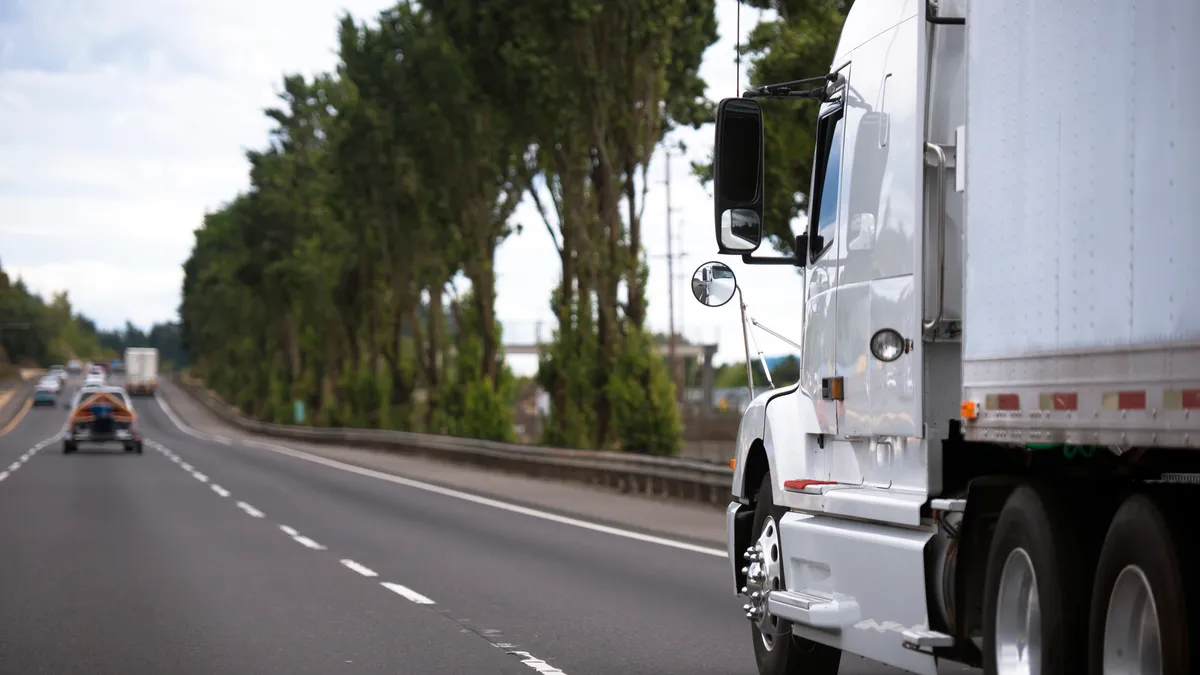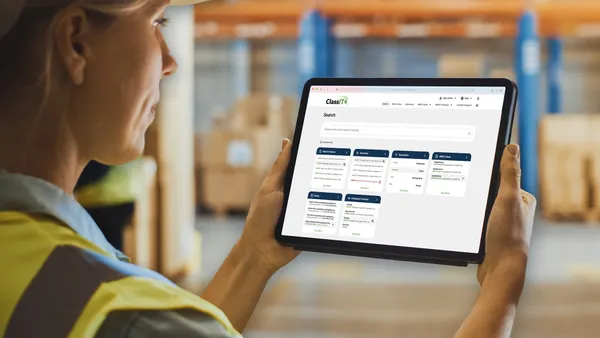Dive Brief:
- Uber Freight more than doubled load volume in the third quarter year-over-year, executives said on the company's Monday earnings call. Freight bookings, defined as what shippers pay before discounts and refunds, grew 81% year-over-year in Q3 to reach $223 million. Revenue grew slightly slower, up 78% for the quarter to $218 million. But losses are growing too — earnings before interest, taxes, depreciation and amortization (EBITDA) was down 161% in Q3 to -$81 million.
- The firm has separated Uber Freight from its "other bets" category within financial reports for the first time this quarter, meaning the segment's bookings, revenue, adjusted net revenue and adjusted EBITDA will be reported separately from now on.
- "Freight growth was driven by load volume increases over 100% in spite of soft market conditions," said Uber CFO Nelson Chai, adding that the service is "rapidly taking share" in the U.S. market. Uber Freight also operates in Germany and announced an expansion to Canada last week.
Dive Insight:
After layoffs at Uber in October, Uber Freight's exception from the bloodletting made it seem like a bright spot in a complicated and sometimes troubled portfolio.
With the business segment reporting financial performance independently, it will be much easier to definitively see performance quarter to quarter as it scales.
Uber as a whole reported a $1.2 billion net loss on top of $3.5 billion in adjusted net revenue. Executives on the call said they are targeting 2021 to achieve profitability, which CEO Dara Khosrowshahi said would come from driving down the cost of sales and dialing in marketing spend.
"This company has been growing so fast over such a long period of time in so many countries that the teams really haven't been able to catch our breath and optimize," said the CEO. In terms of the company's overall profitability, Uber Freight will likely have little effect. The segment's revenue is just 6% the size of Uber Eats and 2% the size of Uber's ride-sharing core.
Still, the dynamics between growing ride-sharing and growing freight-matching are similar. Both require a balance between discounting to win market share and stabilizing pricing to bolster revenue. Khosrowshai said it requires a bit of magic to do so.
"The world's magical companies are the ones that can compound top-line growth of massive scale, improve margins, allocate capital efficiency and do the right thing for all of their constituencies," said Khosrowshai. "We're working hard to be one of those magical companies."














